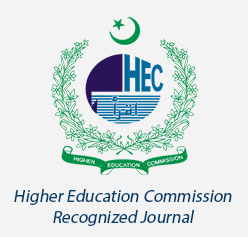Editorial Policy
RADS Journal of Biological Research and Applied Sciences, welcome original research articles in the field of biological, medical and health sciences for publications. It is biannual (two issues per year) journal, with issues published in the month of June (Vol 1) and December (Vol 2) each year, following the respective sequence of previous volumes. The mission of this journal is to provide a forum for publishing new findings on scientific issues pertinent to biological sciences. The journal has a committed internationally recognized Advisory and Editorial board.
The Rads Journal of Biological Research and Applied Sciences is a peer-reviewed, open access, nonprofit multidisciplinary journal which encourages and invites researchers to submit research manuscripts in all fields of biological and applied sciences, including Biochemistry, Genetics and Molecular Biology.
The guidelines are provided to ensure smooth submission, review, and publication processes. Instructions for authors are available here https://jbas.juw.edu.pk/index.php/JBAS/authorguidelines.
Manuscript formatting: All the submitted manuscripts will first be checked to ensure they are in the required format and comply with the journal's instructions.
Ethical Approval: In case of original/research articles, author's contribution could only be considered with the mandatory requirement of the certificate duly signed and stamped from IRC/Ethical Review Board (ERB).
Conflict of Interest: The declaration concerning non-financial conflicts of interest, financial support for study conduction or manuscript preparation and financial interests beyond the study (e.g., if somebody has acted as a consultant or holds equity in a company, even if that company did not directly support the study) should be clearly acknowledged.
Copyright Transfer Agreement: Authors/ contributors who contribute in the journal will read, agree and sign the copyright transfer agreement declaring that the work is original or novel, not under consideration by another journal, and has not been published before.
Plagiarism detection: Submissions will be analyzed by the Editor for their scientific quality, originality and content verification. Text similarity will be checked by the Content verification mode in Turnitin. Content acceptance will be based on the similarity index that must be less than 19% and from a single source it should be less than 5%.
Peer-Review process: Double blind Peer-Review process will be followed by soliciting comments of minimum two independent external referees. Rejected manuscripts will be sent back to the authors. However, the comments (major, minor or accept as it is) of the reviewers will be relayed to the corresponding authors for incorporation of corrections. Revised manuscripts and response letters received from the authors will be reevaluated by the Editor carefully prior conveying the final decision.
Page proofs: Page proofs of the accepted manuscripts will be sent to the authors (principal and co-authors) for checking and approval.
Page Charges: There is no article processing/publication fee or any hidden charges asked from the author at the time of submission or after the publication of the manuscript. The journal will only consider manuscripts that have not been published before or submitted elsewhere for publication. The reanalysis of previously published data can be acceptable and the authors to supply a copy of previous related articles so the journal can decide if the new one is sufficiently novel to merit publication. The originality of the data submitted is the responsibility of all authors and the journal is not responsible for the contents of the articles published.
Corrections and retractions:
We try hard not to make mistakes, but errors either by editors and/or authors may appear into the published material. We publish corrections when necessary, and to ensure that corrections are handled consistently, one editor deals with them all. There is no time limit set for notifying errors or publishing corrections. We always try to contact the author of the original article unless the error is very obvious, and we publish all corrections at earliest possible time.
If any article is published and there is a mistake discovered between online and print publication, we will normally correct this by making the article correct in both versions.
Retractions are considered by journal editors in cases of evidence of unreliable data or findings, plagiarism, duplicate publication, and unethical research. We may consider an expression of concern notice if an article is under investigation.
A replacement version of the online article is posted containing just the metadata, with a retraction note replacing the original text. The PDF may be removed or replaced with a version watermarked with “Retracted.” A retraction notice is published in print.
















